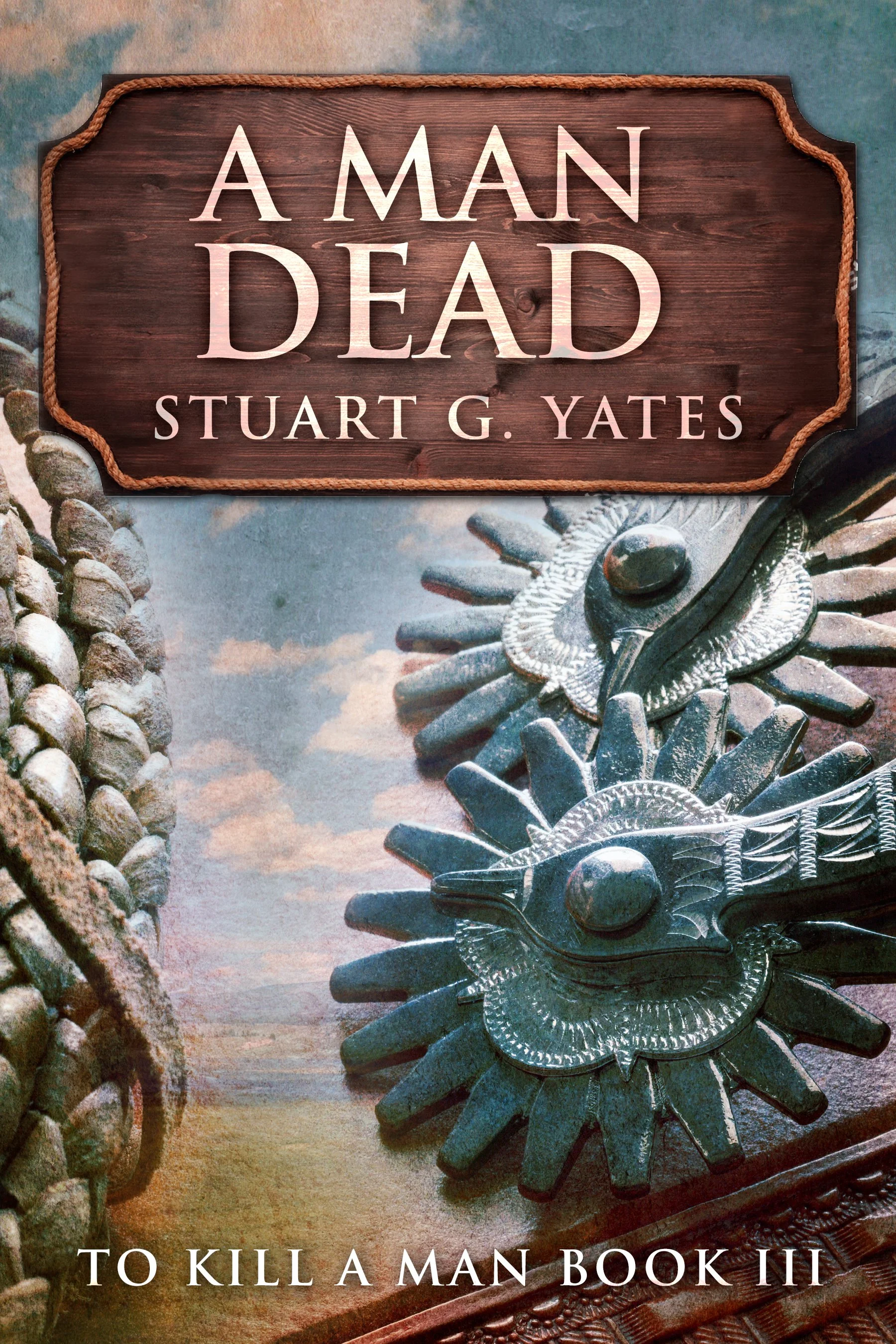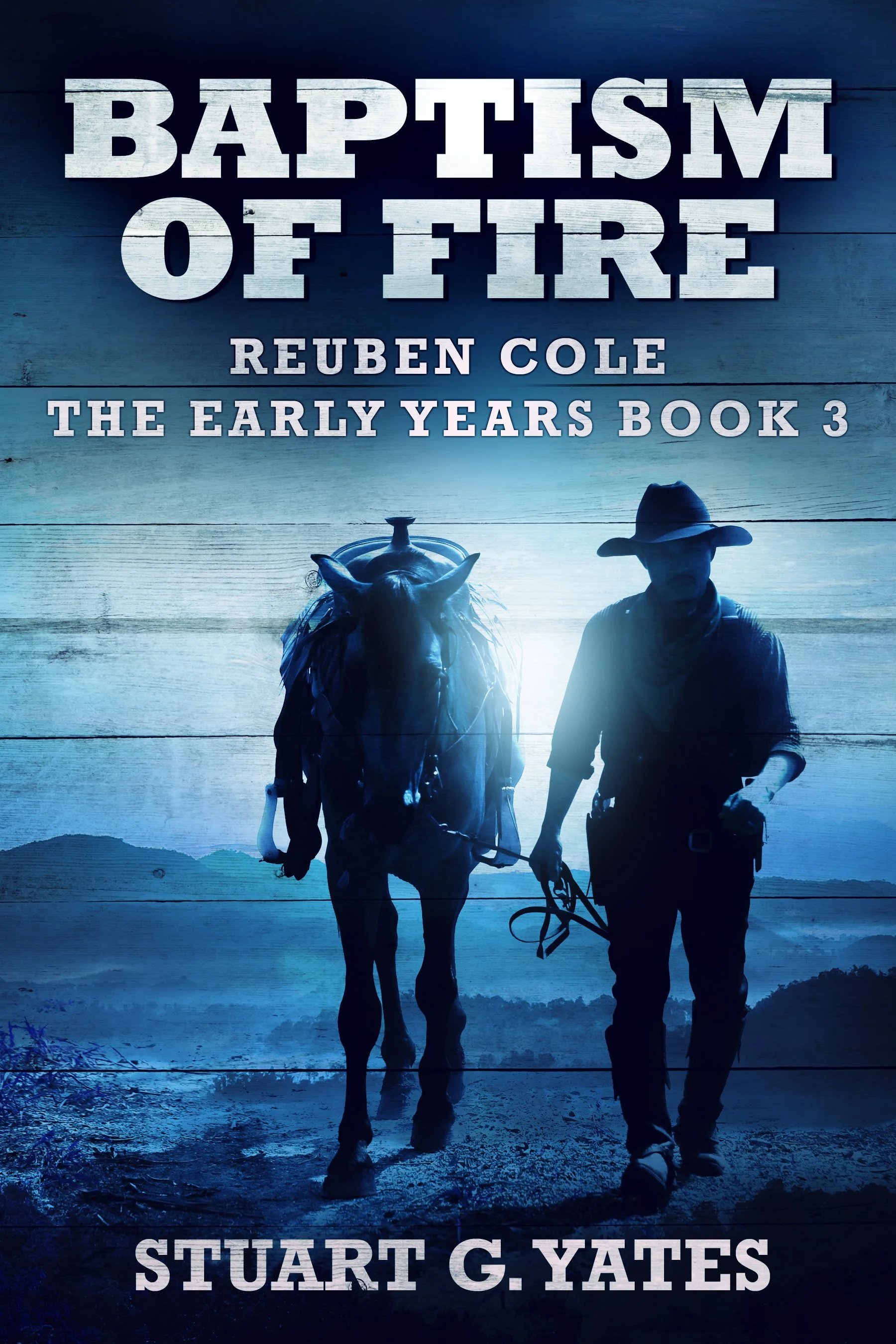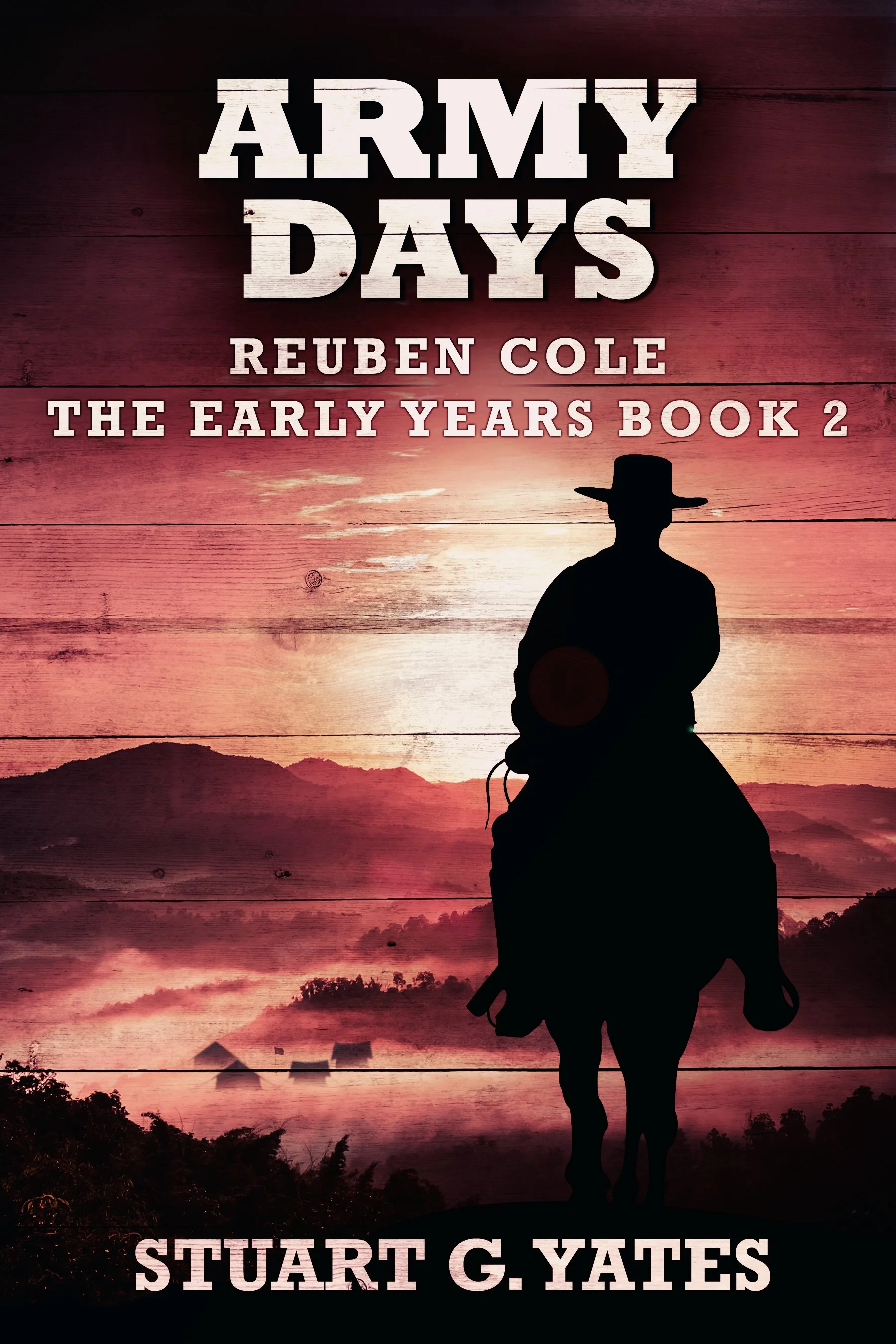A Man Dead (To Kill A Man Book 3)
Book summary
In "A Man Dead," Gus Ritter's quest for vengeance takes a perilous turn as he heads south in search of his brother's killer. Along the way, encounters with marauding Comanches force him to confront the brutality of his journey. As the story unfolds, a final showdown looms, revealing long-held secrets, yet leaving the outcome uncertain—will anyone survive the reckoning?
Excerpt from A Man Dead (To Kill A Man Book 3)
Reining in his horse, Bart Stenton gazed out across the prairie before closing his eyes and taking a deep breath. He loved this land. He loved the loneliness of it, the wild, unsullied beauty, the endless rolling plain, the distant hills shrouded in light purple mist. Once, not so very long ago, countless savages roamed this place, hearts filled with hatred, minds set on violence. But years of determined killing had removed the threat. Now, all was peaceful, apart from the occasional war band, groups of stinking, starving, godless warriors, all of whom he enjoyed hunting and butchering.
He knew that soon, no such pleasurable pursuits would punctuate his life. The tribes were gradually being pushed away from populated areas and forced into reservations. With this containment, the sport of killing would end. He knew it would happen, but not yet. He hoped, not yet. He was an Indian-fighter, adept at killing, be it close-up and face-to-face or from a distance. He didn’t mind which, so long as another red-skinned sonofabitch lay bloody and dead on the ground. It was all the same to Bart Stenton.
Following the course of the river, he led his horse to one of the locations he knew well, where the grass grew lush and succulent. He jumped down from the saddle and stretched out his back, allowing his horse to chomp noisily and fill its belly with nature’s goodness. Drifting down to the river bank, he got down on his knees, splashed water over his face and reached for his canteen to refill it.
He stopped, senses alert, as he heard something. The sound, faint but distinct, of a human being. A stifled moan of someone in pain. Careful now, Stenton settled his canteen down on the ground and eased his Remington revolver from its holster. He waited, listening for another sound, anxious to get his bearings.
It came. Prolonged. The definite groan of a man in agony.
Moving stealthily along the grassy banks, he headed in the direction of the sound. His moccasin-clad feet barely broke the blades of grass he walked on. With each step, the sound grew louder. Unmistakable. Rhythmical. Constant.
Crouching down, he carefully parted the tall grass and took in the scene before him. For a moment, he stared, confused and speechless. He couldn’t quite believe what he saw, so he pressed finger and thumb into his eyes, shook his head vigorously and looked again.
There was no mistaking what he was witnessing.
A naked savage, his sweat-soaked body rippling with passion and muscle, had a poor, helpless white boy pinned to the ground. This boy, also naked, arms held down high above his head, writhed in agony underneath the vile redskin, who ploughed his large manhood repeatedly into the forbidden nether regions of the young man’s body. Such a scene belonged in the very bowels of hell itself.
Disgusted, his stomach gripped with the urge to vomit, Stenton rose to his feet and, all caution pushed aside, strode out into open view.
The savage saw him and ceased his thrusting. Something flickered across his face. Alarm. Terror. Total bewilderment. He pulled back and the young man cried out as the redskin’s still erect manhood slipped free of his despoiled body. The redskin’s hands came up, his mouth opened, the first words of protest and surrender formed on his lips. But no sound came out.
Stenton shot him, the heavy caliber slug slamming into the Indian’s chest, sending him reeling backwards. He squawked in pain and fear, tried to lever himself back up, and Stenton shot him again, the bullet striking him in the right collarbone. Stenton advanced and, with each step, he put another slug into the filthy savage’s body, perforating his loathsome flesh with lead.
Six shots spent, Stenton, standing over the barely breathing savage, cracked open the cylinder and spilled the cartridges into the ground. He fed in six more bullets, and emptied the revolver into the savage with evenly spaced shots. Only then did he stop, lower the smoking hand gun and, eyes closed, utter a silent prayer skywards.
“Oh, sweet Jesus,” came a small voice from behind him.
Stenton whirled to see the young man trembling before him, hands clasped over his groin to hide the shame of his nakedness, his body lily-white in the glare of the morning sun.
“It’s all right, son,” said Stenton. Dropping the gun into its holster, he put a fatherly arm protectively around the young man’s shoulders. “It’s all over now.”
Breaking down, the young man pressed himself into Stenton’s chest, his sobs loud and strong. Stenton, basking in the righteousness of his actions, patted the young man’s head and smiled. This was already a good day and it had barely begun.
A buzzard circled overhead, its occasional screech ringing out across the endless reaches of the cloudless sky. As he sat on the buckboard, reins looped lightly through his fingers, Han watched the bird intently, knowing its presence was a bad omen. Behind him, huddled beneath a threadbare blanket, the woman stirred restlessly. They had spent the best part of two days in a fruitless search for her boy, taken by a Comanche raiding party. She’d pleaded, begged him to continue, but it was useless. Han was no tracker, so they packed up the open wagon and headed south towards a small mining town in the hope of finding his sister.
“You expect me to help you, when you do nothing for me!” she had yelled, beating her fists against his chest. She blamed the Okinawan for everything, regardless of the facts, her hatred for him boundless. The Indians attacked her homestead in the night, ghostly shapes in the dark, and they killed both her man and Han’s companion. They had taken her son, Jeremiah.
“They’ll murder him!” she had cried, slumping down in the dirt to wail and rock herself backwards and forwards.
The search would always be fruitless. Han told her so. She didn’t listen, just kept on crying and rocking, her mind and body racked with grief. He waited, sitting in silence next to her, staring out into the dull, grey morning after the attack had been beaten back. Han had killed many of them, but not enough.
At last, sitting up straight, her shoulders heaving, she grew quiet. “What will they do to him? Scalp him, and then what? Torture?”
“No. They will keep him and feed him so that he grows strong and straight.”
“You don’t know that.”
“It is what they do. They do it many times. They use their seed and replenish their family stock. Girls, to carry offspring.”
“Holy Christ! And you think that is better than killing him? They’ll use him as breeding stock, like a goddamned animal?”
“In the years to come, he will forget who he was. He will think it natural for him to find a woman from the tribe to have a family with.”
“You heathen bastard. You’re as cold and as heartless as they are. Dear God, you even look like them!”
He turned away. “I did not make this country what it is. You cannot blame me for its ways, its evil. I came here believing it was a good place, full of opportunities. Instead, all I have found is sadness and bitterness. Lies and betrayal.” He looked at her. “Do you not think that if I could, I would undo everything? Of course I would. If I had known what lay waiting for us, like a thief in the night, I would have stayed in my home and never urged my family to come to this damned place. You are not the only one who has lost loved ones.”
For a long time, her eyes studied his face. She didn’t say anything more, but Han knew her hatred for him continued to simmer away just under the surface.
They moved away in the general direction of the town she’d called Prairie Rise. They hoped they might be able to rustle up some help… perhaps convince the Army to send a troop to track down the raiders who had taken her son. Perhaps. But the town held bitter memories for her. It was there that the gunfighter, John Wesley Hardin, had killed her husband. Nobody cared about that. Why should they care about her son?
They camped by a stream that first evening. The air was thick, the heat oppressive and, as the sun went down, Han stripped off his shirt and pants and swam in the cool water. She stood on the bank and watched him. Her eyes never left him as he stepped out from the water and stood before her, drying himself off with an old blanket from the back of the wagon.
“Okinawan,” she said quietly. He stopped, pressing the coarse material of the blanket against his face. He frowned. “What is that? The name of a tribe?”
He let slip a small, sharp laugh. “What is your name? You have not told me your name.”
“Susannah. Suzie for short.”
“My name is Han.”
“I’m not interested in your name, nor anything to do with you.”
Grunting, Han dried himself and pulled on his shirt. He sat down next to the small fire he’d made. Susannah made pancakes and fried them in an old tin plate. They ate in silence.
“Why did you lead those murdering bastards to our home?”
She spoke with as much indifference as if she were asking him the time. He stared at her, incredulous. How could she turn so sharply? So suddenly?
He wiped his plate with the last piece of his food and munched it down. “I didn’t.”
“Strange how they appeared almost as soon as you did.”
“Do you truly believe what you say?” Shaking his head, he threw his plate to the ground. “Think about it, for one second, eh? I lead them to your place, then kill them when they attack. What would be the point in that?”
“Maybe you changed your mind. Maybe you saw something you liked.” She arched a single eyebrow, the light from the fire picking out and contorting her features, making her appear almost maniacal in the orange glow. “I’ve seen the way you look at me with your eyes full of lust.”
He turned away, feeling hot, and not only from the fire.
“You can’t deny it. You heathens are all the same – after one thing and one thing alone. Tell me it isn’t so.”
But he couldn’t, because he knew it was true.
Sitting astride an ancient fallen tree trunk, Ritter, lost in the cleaning of his revolver, did not notice Nati’s approach until she was almost upon him. Turning to her, he smiled into her smooth, handsome face. She pushed back his hat and planted a kiss on his lips, her left hand gripping the hair at the nape of his neck. Responding, he looped his arm around her waist, moaning at the taste and feel of her.
“You hungry?” she asked, pulling away and sitting down.
“For you I am.”
She sniggered, tapping his lips with a forefinger. “You’re a terrible man, Gus Ritter. You need your wits about you, and your strength. The good Father says we’re less than a day away from the next big town.”
“What’s that got to do with anything?” He leaned into her and kissed her again.
Pushing him back with her palms, she grinned. “Well, because when we get there, we can get ourselves a room.”
“A room?”
“Yes. A girl wants a bit of luxury now and then. My body’s all battered and bruised with rolling around on this dusty dry earth every time we do it.” She stomped the ground to give emphasis to her words. “I want crisp, clean bed sheets and deep-piled pillows. That’s how a gentleman treats a lady, Gus Ritter.”
“I ain’t no gentleman,” he said and made a grab for her.
Giggling, she jumped up and danced out of reach. “Don’t I know it!”
“You ain’t complained so far.”















Praesent id libero id metus varius consectetur ac eget diam. Nulla felis nunc, consequat laoreet lacus id.